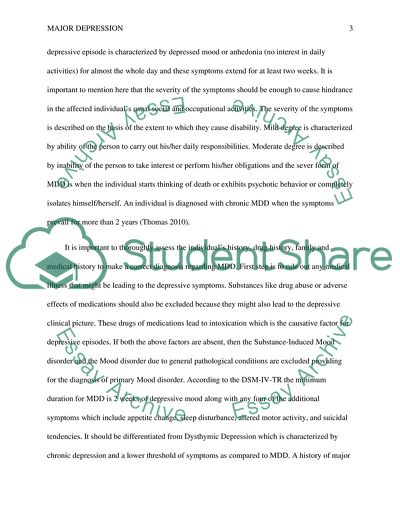Cite this document
(Major Depression and Antidepressant Treatment Literature review Example | Topics and Well Written Essays - 1250 words, n.d.)
Major Depression and Antidepressant Treatment Literature review Example | Topics and Well Written Essays - 1250 words. https://studentshare.org/psychology/1771469-major-depression
Major Depression and Antidepressant Treatment Literature review Example | Topics and Well Written Essays - 1250 words. https://studentshare.org/psychology/1771469-major-depression
(Major Depression and Antidepressant Treatment Literature Review Example | Topics and Well Written Essays - 1250 Words)
Major Depression and Antidepressant Treatment Literature Review Example | Topics and Well Written Essays - 1250 Words. https://studentshare.org/psychology/1771469-major-depression.
Major Depression and Antidepressant Treatment Literature Review Example | Topics and Well Written Essays - 1250 Words. https://studentshare.org/psychology/1771469-major-depression.
“Major Depression and Antidepressant Treatment Literature Review Example | Topics and Well Written Essays - 1250 Words”. https://studentshare.org/psychology/1771469-major-depression.


